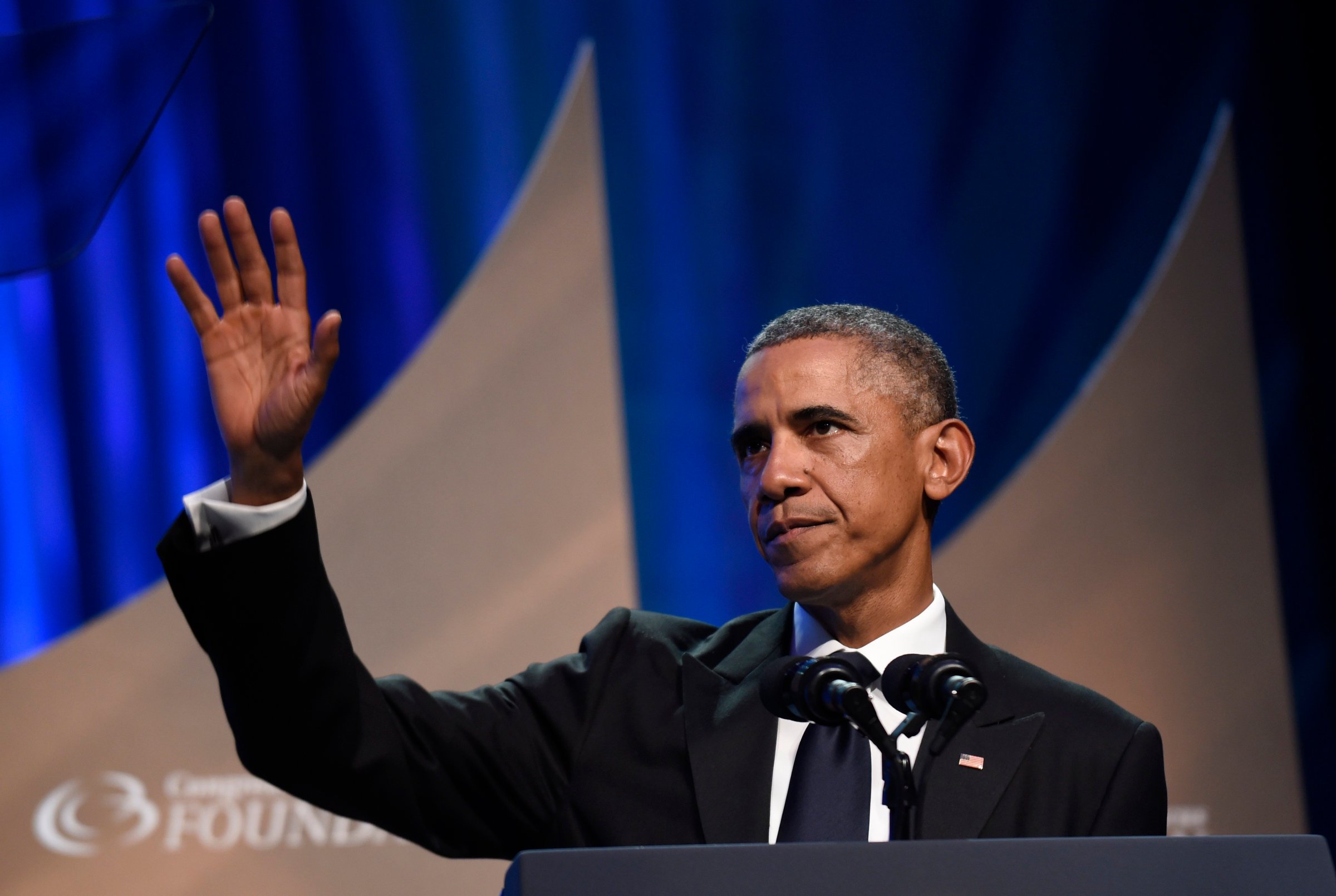
“This isn’t some official campaign speech or political speech,” President Obama declared Thursday in Chicago, in the middle of a nearly hour-long address that was, if nothing else, decidedly political.
With 33 days until the midterm elections, the President was attempting once again to pivot the national conversation back to the economy after months dominated by foreign crises, in West Africa, Iraq, Syria and Ukraine. Obama had spent the morning campaigning with beleaguered Illinois Governor Pat Quinn, a Democrat in a close re-election battle, an event that marked the President’s return to the campaign trail for Democrats. Senior aides said last month that Obama would use much of October to help Democrats where he can, which is a dwindling set of locales, given the drag of his approval ratings in many contested districts and states.
Perhaps for this reason, he chose the campus of Northwestern University to attempt again a feat he has so far failed to achieve: convincing the American people that his economic policies were working.
“It is indisputable that our economy is stronger today than when I took office,” Obama said. “By every economic measure, we are better off now than we were when I took office. At the same time, it’s also indisputable that millions of Americans don’t yet feel enough of the benefits of a growing economy where it matters most, and that’s in their own lives.”
Delivering a recap of past progress and outlining four cornerstones “of a new foundation for growth and prosperity,” Obama’s new message was familiar, differing only in its sharply subdued ambition. Longtime horizons have replaced the calls for swift action in a speech whose signature refrain was a call to collective action that is almost certain no to come: “Let’s do this,” he said, again and again.
Driving home the traditional Democratic messaging points on immigration, minimum wage and health care, Obama blamed Republicans, and Fox News, for standing in his way. “A true opposition party should now have the courage to lay out their agenda,” he complained. In a break from past practice, he didn’t promise an end to political gridlock after November; there was no pledge that the “fever will break” if his favored candidates win. Indeed, many of the most vulnerable Senate Democrats now seeking to avoid defeat are campaigning on their ability to convince their constituents that they will block Obama, as much as work with him.
“I’m not on the ballot this fall — Michelle’s pretty happy about that,” Obama said, before delivering a line that will make most vulnerable Democrats cringe. “But make no mistake: these policies are on the ballot, every single one of them.”
Then, in a speech he maintained was presidential and not political, he turned an unsparing tongue on his Republican foes. “The one thing they did vote yes on was another massive tax cut for the wealthiest Americans,” Obama said, reflecting on one of the most unproductive legislative sessions in American history.
Not that he was campaigning of course. “I’m not going to tell you who to vote for,” he added. “Although I suppose it’s kind of implied.”
More Must-Reads from TIME
- Donald Trump Is TIME's 2024 Person of the Year
- Why We Chose Trump as Person of the Year
- Is Intermittent Fasting Good or Bad for You?
- The 100 Must-Read Books of 2024
- The 20 Best Christmas TV Episodes
- Column: If Optimism Feels Ridiculous Now, Try Hope
- The Future of Climate Action Is Trade Policy
- Merle Bombardieri Is Helping People Make the Baby Decision
Contact us at letters@time.com